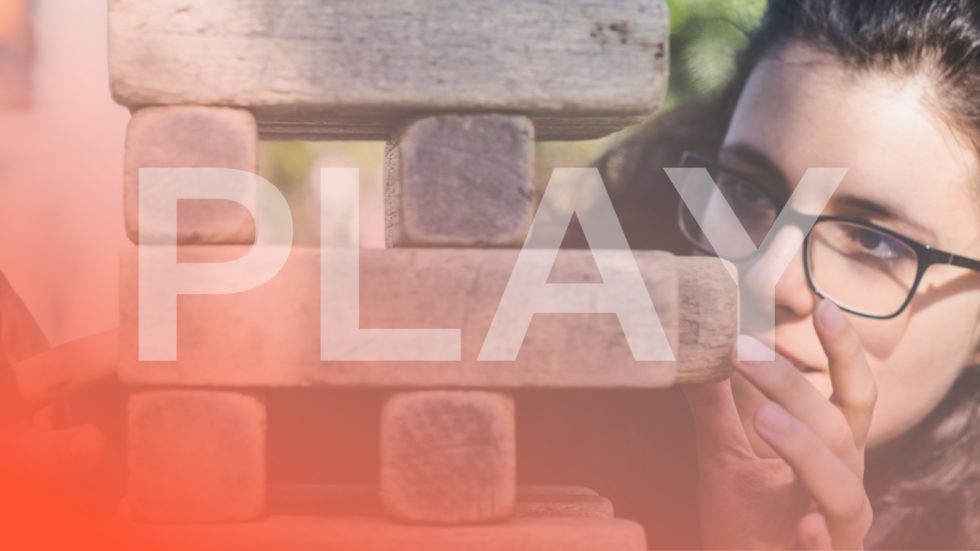Because we’ve been privileged to spend 20+ years playing with companies and organizations that live and breathe play all day long, from toy companies, to the funniest show-makers on traditional TV, to digital entities who serve up the new ways kids play, and even with educators who gamify learning across the curriculum, we see play as a way to make insights deeper and more meaningful, not shallow and silly.
To understand what play can do as part of the process, or as a piece of the outcome, consider what it forces us to do…And close your eyes and think back to your last experience with Legos, or on a soccer field, or playing dress-up, last week or last decade.
- In play, we risk. Play is so good or kids – the work of childhood – because it allows kids to try out, attempt and consider what’s next developmentally. It’s the way kids often experiment and consider whether they’re ready to take a leap. Whether it’s play-acting what it’s like to be older, practicing the boundaries of a friendship through fake battles, or becoming a designer with smaller scale models, kids aren’t simply imitating, they’re giving themselves the freedom to be a little bigger and bolder than they might be ready for yet. Such is the case with brands and companies. Engaging in play helps teams have fun with the possibilities, and opens up space for “what ifs.”
- In play, we adapt. Many play experts suggest that rule number one of play is that there can’t be a goal. For teams charged with making decisions on behalf of organizations, this could be daunting. But it can also allow the destination to be guided by the true data, the most organic process and the authentic insights uncovered. Adapting to new knowledge, much like a child adapts to a new kid on the playground, allows them to see their organization with new eyes, and puts them in the mindset of using new developments as props for better, deeper play, not obstacles in the way.
- In play, we accept. Not all kinds of play are the same, but play often requires a collaborative spirit, and a way of keeping the game going…Often play requires feedback and response to keep it interesting. When our teams adapt a playful mindset, keeping the thinking going becomes less frivolous and more fruitful. It can inspire them to build and construct, and resist completing the work before it’s time.
We believe play is part of every project – for Centennial and Boomers, for serious subjects and for toys, for issues of urgency and for those that require ruminating and extreme creativity. We hope you’ll play with us soon!
